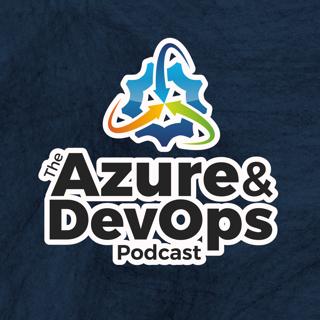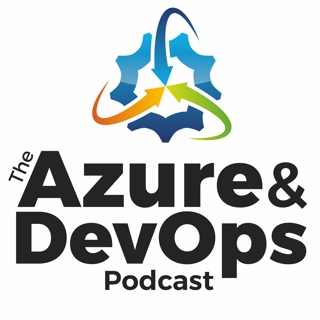
Tony Cardella: .NET Testing using NCrunch
Tony Cardella is a seasoned software engineer based in Houston, Texas. With a robust background in enterprise development, Tony brings deep expertise in the .NET Framework (C#), Python, and cloud platforms including Microsoft Azure and Amazon Web Services. His technical repertoire spans both relational databases — such as SQL Server, MySQL, and PostgreSQL — and NoSQL solutions like Azure Cosmos DB. Tony is a strong advocate for developer productivity tools, frequently leveraging JetBrains products including ReSharper, DataGrip, PyCharm, and Rider, as well as Visual Studio. Outside the world of code, Tony is equally passionate about strength training, whether he’s lifting weights himself or coaching others in the discipline. Topics of Discussion: [1:34] Tony shares his career journey, starting with a consulting company that reached out to him while he was job hunting. [3:17] NCrunch is an automated testing tool that runs unit tests continuously, focusing on impacted tests. [5:08] Challenges and benefits of NCrunch, and why would we need to use it? [7:44] Tony shares his approach to unit testing, focusing on covering 80% of the code with minimal effort and addressing the remaining 20% as needed. [8:51] The importance of not over-investing in unit tests that may not provide significant value. [11:47] Tony explains how Ncrunch provides code coverage metrics and visual indicators of covered and uncovered code. [12:59] The tool’s ability to show exactly where unit tests are failing, without needing to dive into stack traces. [13:51] Distributed processing and integration tests. [27:44] The challenges of running integration tests with external dependencies, such as databases. [29:18] Exploratory testing and code quality. [32:34] Tony emphasizes the value of unit tests in codifying tribal knowledge and ensuring code quality. Mentioned in this Episode: Clear Measure Way Architect Forum Software Engineer Forum Tony Cardella Lightning Talks! The Code Gorilla Survey: Fixing Bugs Stealing Time from Development NCrunch Want to Learn More? Visit AzureDevOps.Show for show notes and additional episodes.
1 Sep 39min

Jonathan Peppers: GitHub Copilot for Maui Applications - Episode 364
Today’s guest is Jon Peppers, Principal Software Engineer on the .NET MAUI team at Microsoft. Before building developer tools, Jonathan was a Xamarin MVP and the lead developer behind various cross-platform Maui apps. With a deep background in C#, from WPF-based self-checkout systems to home automation software featured on Extreme Home Makeover, Jonathan brings a wealth of experience in both app development and the frameworks that power them. Topics of Discussion: [1:59] Jonathan recounts his first job after college, working on C# for self-checkout software and migrating to WPF. [4:40] How much on the continuum are we right now with Copilot agent mode? [7:11] The process of setting up Maui development, including installing Visual Studio and the Maui workload. [12:40] Using Copilot for multi-language debugging. [18:42] Copilot's effectiveness in deleting unnecessary files and finding errors in string localization files. [19:10] Copilot coding agent. [21:20] The process of assigning issues to Copilot, which creates a branch, opens a pull request, and updates the description with its plan. [27:36] The availability of different models in VS Code, including Claude and GPT, and the anticipation of new models being released. [31:36] The potential for using LLMs on-device for privacy concerns, especially in healthcare. [35:01] Jonathan encourages developers to try Copilot in their IDEs and explore its code completions and suggestions. [35:17] Jonathan’s Cat Swipe dating site! Mentioned in this Episode: Clear Measure Way Architect Forum Software Engineer Forum How the .NET Maui Team uses GitHub Copilot for Productivity Jonathan on LinkedIn Jonathan Peppers Want to Learn More? Visit AzureDevOps.Show for show notes and additional episodes.
25 Aug 36min

Micah Martin: Clean Coders - Episode 363
Micah Martin is a co-founder, CEO, and Studio Director for Clean Coders. He’s a 2nd-generation coder, serial entrepreneur, family man, pilot, airplane builder, engineer, author, and just a normal guy trying to enjoy life to the fullest. He is also a co-author of Agile Principles, Patterns, and Practices in C#, along with his father, Robert C. Martin, also known as Uncle Bob, and a contributor to the popular testing framework FitNesse, among other things. Topics of Discussion: [1:52] Micah talks about early influences from his father, Uncle Bob, including childhood “robot” games and learning to code on a Commodore 64 and the first Macintosh. [3:47] First job working alongside industry legends like Kent Beck and Ward Cunningham, and the humbling realization that college hadn’t prepared him to build real software. [5:00] Founding Clean Coders to distribute training videos and later expanding into custom software development with Clean Coders Studio. [6:54] Why apprenticeship is key to developing strong software engineers and how Pete McBreen’s Software Craftsmanship influenced his approach. [8:20] Parallels between martial arts training under a sensei and learning software from a master craftsman. [11:23] How Clean Coders apprentices learn new languages like Clojure through Project Euler challenges and Koans, and why maintaining and extending code is essential training. [15:13] The origins and purpose of FitNesse, acceptance testing, and the need for a modern replacement. [18:43] The gap in tooling for non-programmers to write executable tests, and AI’s potential role in bridging it. [20:35] The role of bullet-point test scenarios in developer/customer collaboration. [21:07] The decline of Agile’s technical focus and the creation of the Software Craftsmanship Manifesto at a summit in Libertyville, IL. [25:29] Carrying forward the Clean Code discipline in both training and client projects. [27:11] Plans to offer a digital apprenticeship experience through CleanCoders.com. [28:17] How Micah uses AI for algorithms, test data generation, and client projects, plus its current limitations. [36:37] Lessons from aviation autopilot systems and why humans remain essential in software development. Mentioned in this Episode: Clear Measure Way Architect Forum Software Engineer Forum Agile Principals, Patterns, and Practices in C# Clean Coders Want to Learn More? Visit AzureDevOps.Show for show notes and additional episodes.
18 Aug 39min

Burke Holland: GitHub Copilot Agent - Episode 362
Burke Holland is a Principal Developer Advocate at Microsoft who leads the Developer Tools Advocacy team. He’s done so much in developer tools, like growing VS Code from 6M to 40M+ users. He’s a frequent speaker at conferences like Microsoft Build, Ignite, GitHub Universe, QCon, and VS Code Day, which he helped create. He’s led many product launches for GitHub Copilot, Codespaces, and more. He has a very popular YouTube channel talking about developer tech. Topics of Discussion: [3:33] Burke describes his transition from being a good developer to an evangelist, inspired by a Visual Studio evangelist he met. [6:27] The rapid pace of change in the software development world compared to other industries. [9:22] AI-driven development and the various modes available in VS Code, including ask mode, edit mode, and agent mode. [15:41] Burke describes the current moment in AI developer tooling — no one really knows yet what the end product is supposed to be. Everyone agrees AI will help developers, but exactly how is still being figured out. [16:39] What are the right questions to ask AI? [17:41] The importance of providing the AI with the right context to ensure accurate and efficient development. [25:05] AI’s unpredictability makes it difficult to rely on it for consistent development tasks, which is frustrating and foreign to most developers. [32:18] Burke explains that while local AI models can handle small, scoped tasks like generating a function’s contents, they still fall far short of the performance needed for more complex jobs compared to models like GPT-4 or Claude. [37:18] Co-Pilot’s competition. [38:23] Inspiration to people that as long as you are the software architect, you can do anything. Mentioned in this Episode: Clear Measure Way Architect Forum Software Engineer Forum Programming with Palermo — New Video Podcast! Email us at programming@palermo.net. VS Code Day 2024 Youtube.com/@BurkeHolland/videos Burkeholland.github.io/resume/ Build.microsoft.com/en-US/speakers/0e476452-35ca-4750-ac78-393c0d8c4cb3 Linkedin.com/in/burkeholland/ Want to Learn More? Visit AzureDevOps.Show for show notes and additional episodes.
11 Aug 41min

Ted Neward: Software Architecture - Episode 361
Ted Neward currently labors on behalf of Capital One as a Senior Distinguished Engineer, leveraging his speaking, writing, and coding experience to bring a technology-focused and -sharpened mindset to the mortgage industry. During his more code-focused years, he specialized in high-scale enterprise systems, working with clients ranging in size from Fortune 500 corporations to small 10-person shops. He is an authority in Java and .NET technologies, particularly in the areas of Java/.NET integration (both in-process and via integration tools like Web services), programming languages of all forms, back-end enterprise software systems, and virtual machine/execution engine plumbing. He is the author or co-author of several books, including Professional F# 2.0, Effective Enterprise Java, C# In a Nutshell, SSCLI Essentials, Server-Based Java Programming, and a contributor to several technology journals. All told, he has written well over a hundred articles in both print and online form. Ted has also been an “insider” of one form or another with a variety of the technology providers of the world: an IBM Champion of Cloud, a Microsoft F# MVP (having also been an Architect and C# MVP in prior years), an F# Insider, C# Insider, VB Insider, INETA speaker, DevelopMentor instructor, PluralSight course author, and a member of various Java JSRs. Topics of Discussion: [2:44] Ted’s career journey and what keeps him motivated in the industry. [4:16] Why Ted believes the industry is overdue for a new mainstream programming language. [8:12] The evolution of case tools, UML, and why generating code has never been the real problem. [15:14] The challenge of keeping architecture simple versus embracing complexity. [22:33] The role of philosophy in software development. [38:01] Lessons from calculators, fundamentals, and why developers must still master core skills. [38:46] The impact of AI on productivity and job roles. [43:25] The Importance of Domain-Specific Languages (DSLs). [56:26] Ted and Jeffrey talk about a recent article in The Economist, “Jane Street’s sneaky retention tactic”. [1:01:54] The importance of writing as a tool for developers to structure their thoughts and improve communication. [1:04:02] A few of the upcoming places and events that you can catch Ted speaking live! Mentioned in this Episode: Clear Measure Way Architect Forum Software Engineer Forum Programming with Palermo — New Video Podcast! Email us at programming@palermo.net. Ted Neward LinkedIn Visual Studio Live! KCDC Voxxed Days, Crete Build Stuff Want to Learn More? Visit AzureDevOps.Show for show notes and additional episodes.
4 Aug 1h 6min

Joe Cuevas: Your First Decade as a Software Engineer - Episode 360
Joe Cuevas Jr. is a seasoned software engineer based in San Antonio, Texas, with a strong focus on front-end development and user experience. At Southwest Research Institute, he contributes to innovative engineering solutions that span industries. With a background that blends technical precision and creative problem-solving, Joe brings a thoughtful perspective to the evolving world of software development. His passion for clean design, scalable code, and collaborative innovation makes him a standout voice in today’s tech landscape. Topics of Discussion: [1:46] Why Joe fell in love with programming after a single VB.NET class. [5:00] What guided Joe towards the enterprise side of .NET. [6:25] Joe’s favorite foundational .NET and ASP.NET Core books. [9:06] Learning algorithms, concurrency, and testing to make up for no CS degree. [10:00] Why test automation is essential and doing testing immediately after writing the code. [12:14] Thoughts on test-driven development vs. testing right after coding. [14:18] Previewing Microsoft Semantic Kernel in Action, by Daniel Costa. [15:38] How Joe became a Manning book reviewer, and what he’s learned. [17:18] Prompt engineering and agent instructions: what’s ready now. [18:21] Codex and the moment that blew Joe’s mind. [22:26] How Joe sees software architecture evolving in the future. [24:09] Large language models vs. older code bases, and where they shine. [27:57] Dependency injections. [32:43] Joe’s advice for junior developers and why persistence beats perfection. Mentioned in this Episode: Clear Measure Way Architect Forum Software Engineer Forum Programming with Palermo — New Video Podcast! Email us at programming@palermo.net. Joe Cuevas LinkedIn ASP.NET Core in Action ASP.NET Core in Action, Third Edition Unit Testing Principles, Practice, and Patterns Unit Testing Principles, Practices, and Patterns: Effective testing styles, patterns, and reliable automation for unit testing, mocking, and integration testing with examples in C# Dependency Injection in .NET Microsoft Semantic Kernel in Action Explore — LeetCode Joe on GitHub Want to Learn More? Visit AzureDevOps.Show for show notes and additional episodes.
28 Juli 35min

Philip Japikse: Catching up - Episode 359
An international speaker, Microsoft MVP, ASPInsider, MCSD, PSM II, PSD, and PST, and a passionate member of the developer community, Phil has been working with .NET since the first betas, developing software for over 40 years, and has been heavily involved in the Agile community since 2005 as well as a Professional Scrum Trainer. Phil has taken over the best-selling Pro C# books (Apress Publishing), including Pro C# 10, is the President of the Cincinnati .NET Users Group (Cinnug.org), and the Cincinnati Software Architect Group, founded and runs the CincyDeliver conference (Cincydeliver.org), and volunteers for the National Ski Patrol. During the day, Phil works as the CTO & Chief Architect for Pintas & Mullins. Phil always enjoys learning new tech and is always striving to improve his craft. Topics of Discussion: [2:53] Why Phil still loves writing software after 40-plus years. [5:39] The difference between being a consultant and supporting code long-term. [8:27] Agile roles and user experience. [8:40] Embedding engineers in the business to avoid “telephone game” decisions. [11:30] “Move fast” vs. move efficiently — real-world cautionary tales. [13:40] Using Figma for business rule diagramming before writing a single line of code. [14:52] Releasing 4 x per week and getting rapid feedback. [16:49] NASCAR, motocross, and the connection of slow builds of how software teams avoid friction. [18:41] Measuring team efficiency, and how Phil eliminated emergency production fixes by mandating quality. [22:00] Feature flags, PBI coverage, and the team’s shared ownership of the code. [26:09] AI in legal tech: where it works, where it doesn’t. [34:56] The architectural shift created by LLMs, vector databases, and agents. [39:42] AI is not the goal — it’s just a tool for solving the right problems. [44:03] How Phil uses GitHub Copilot’s agent mode to streamline development. [46:03] Final thoughts: “It’s not about the tech. It’s about making someone’s life better.” Mentioned in this Episode: Clear Measure Way Architect Forum Software Engineer Forum Programming with Palermo — New Video Podcast! Email us at programming@palermo.net. “Clear Measure, Inc.” (Sponsor) “Philip Japikse: Professional C# in .NET - Episode 230” “Philip Japikse: Migrating from .NET Framework to .NET 8 - Episode 296” Want to Learn More? Visit AzureDevOps.Show for show notes and additional episodes.
21 Juli 48min

Mark Miller: CodeRush AI - Episode 358
Today’s guest is Mark Miller, a multi-time C# MVP whose work blends software architecture with cognitive science. As the Chief Architect of the IDE Tools division at Developer Express, Mark is the visionary behind CodeRush — a toolset designed to maximize developer productivity through intelligent design. With nearly four decades of experience creating software tools, Mark’s expertise spans decoupled design, plug-in architectures, and the nuanced craft of great user interfaces. He’s a top-ranked international speaker, known for unpacking complex ideas with clarity, and he shares his thought process in real time on Twitch.tv/CodeRushed. Topics of Discussion: [3:20] Why Mark still loves building developer tools. [6:31] Mark talks about GitHub Copilot agent technology and other AI coding tools. [8:00] The unique edge of CodeRush AI and its distinct advantages in user interface design. [8:39] The future of AI in code generation, predicting increased speed and accuracy in large language models. [9:02] The importance of managing multiple virtual developers in the future, compared to managing traditional software developers. [15:21] Demonstration of CodeRush AI features. [23:51] Mark creates a new class with properties and initializes it with realistic data. [24:40] Mark highlights AI’s ability to modify and integrate code changes automatically, reducing the need for manual copying and pasting. [36:32] AI Find. [37:09] Advantages of CodeRush AI over competitors. Mentioned in this Episode: Clear Measure Way Architect Forum Software Engineer Forum Programming with Palermo — New Video Podcast! Email us at programming@palermo.net. Clear Measure, Inc. (Sponsor) “Mark Miller: The Science of Great UI in Software - Episode 212” CodeRushed - Twitch Mark Miller on LinkedIn Want to Learn More? Visit AzureDevOps.Show for show notes and additional episodes.
14 Juli 39min






















